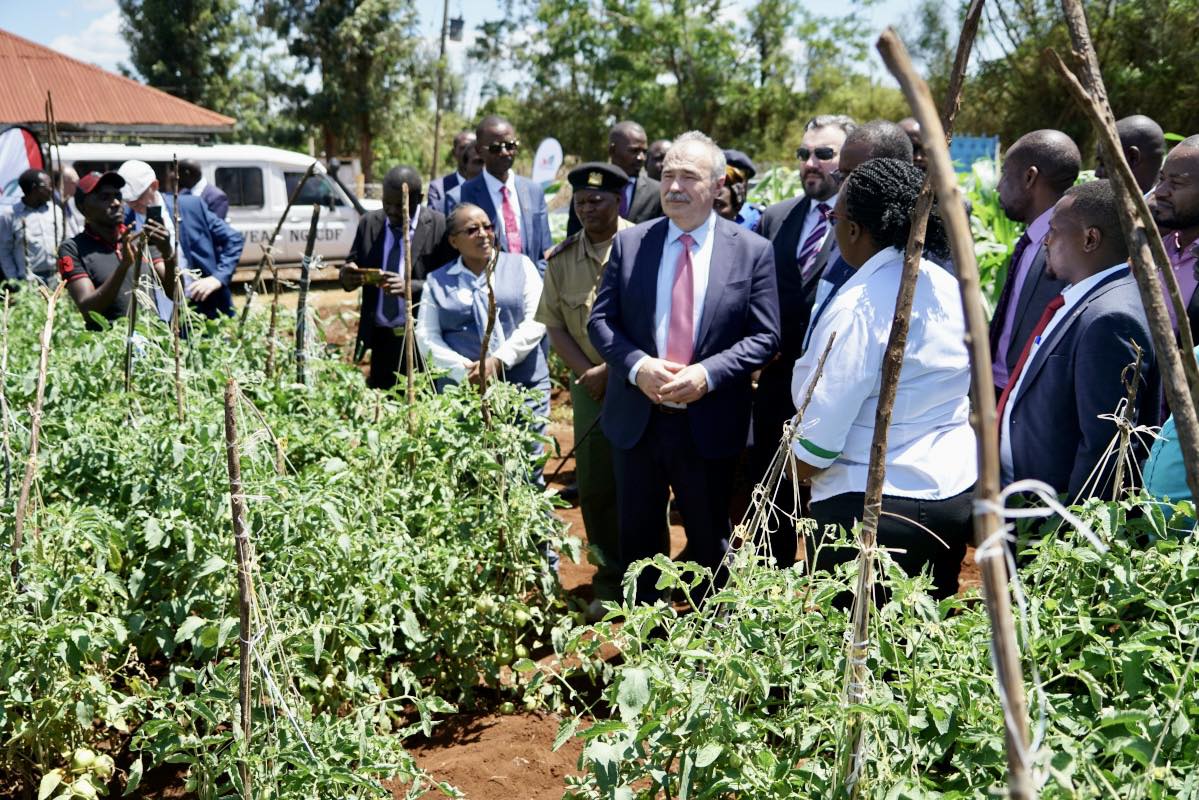Hungary would like to modernise Kenyan farming

African stability is key to European security, and Kenyan support is vital in terms of combatting terrorism and hosting refugees, Péter Szijjártó, the foreign minister, said in Nairobi on Wednesday, adding that Hungary is making large contributions towards these efforts.
Hungary and Kenya this year are celebrating the 60th anniversary of diplomatic ties, Szijjártó said at a joint news conference held with Kenyan counterpart Wycliffe Musalia Mudavadi.
He said ties were based on mutual respect and were especially valued in the current era of wars and the mounting threat of terrorism, the ministry quoted Szijjártó as saying.
Hungary, he said, provides aid to Kenya, adding that the more stable and developed the country is the better the security situation. Hungary is launching a 6 billion forint (EUR 15.2m) lending scheme under which Hungarian companies are establishing two centres for the purpose of upgrading irrigation systems and fisheries in the country with the aim of improving the security of food supplies.
Also, Hungary is providing 200 million forints for setting up an agricultural education and research hub for modernising Kenyan farming using Hungarian seed technology.
Fairer, more balanced international political system
Meanwhile, the minister welcomed Kenya’s decision to build a nuclear power plant, saying the project would help to cut harmful emissions. The sides have signed a cooperation pact on nuclear education and training, with Hungary helping to train Kenyan specialists and sharing experiences in regulation.
Referring to Hungary’s EU presidency in the second half of the year, Szijjártó expressed recognition of Kenya’s call for a “fairer, more balanced international political system”, saying that Hungary supported this aim since politics was now geared towards “lecturing and criticising each other instead of cooperating”.
Noting that the EU-Kenya Economic Partnership Agreement was signed last year, he said Hungary would do its utmost to make sure it came into force during the six months of its EU presidency.
200 Kenyans can come to study in the Hungarian higher education
The minister noted the expansion of the Education Hungary office, and said that as well as the founding universities of Pécs, Debrecen, IBS International Business School and Agriculture and Life Sciences, Miskolc and Sopron universities have also joined the scheme that advises students interested in training opportunities in Hungary.
Before, Hungarian agriculture minister István Nagy was on a visit in Kenya:

Out of the 290,000 people studying in Hungarian higher education, 40,000 are foreign and Kenyans have access to 200 scholarships each year, he noted, adding that they could go on to help develop their country with the knowledge they had gained. Given the popularity of the programme, Hungary is considering expanding the number of participants, he said.
Speaking at a joint press conference with Njuguna N’dungu, Kenya’s finance minister, Szijjártó said the east African region provided a great opportunity for Hungarian companies, adding that he was being accompanied on the trip by executives of 17 companies interested in possible investments and partnerships.
Szijjarto said the business leaders in his delegation to Kenya represented cutting edge technologies in farming, food safety, water management and administrative services, whose projects could contribute to Kenya’s economic development. He said representatives of the two countries were set to sign a mutual investment protection accord, while preparations for an agreement aimed at avoiding double taxation were on the agenda.
The minister highlighted Kenya’s stabilising role in the region, noting that country’s efforts to fight terrorism and its accommodating hundreds of thousands of refugees.
Read also:
- Hungarian government built a model farm in Kenya – Read more HERE
- Journey of tribute: Zsolt Vadász and the Trabant Expedition’s African adventure – Read his story in THIS article
Source:







